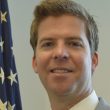If you don’t think RCA matters, think again
A little more than a week ago, I dragged myself to New York City for the annual Radio Club of America awards dinner. It was the end of a 2-1/2 week road trip—I had one day at home in the middle to do laundry—that took me from Chicago to San Diego, back to Chicago and then to Ottawa and Montreal, before I headed to the Big Apple. I was more tired than you can imagine. And I hate wearing a necktie. But there never was a doubt that I would attend the RCA event.
The event matters, in large measure because the RCA matters. Some have said that the RCA could use some new blood, and that’s probably true. But that can be said for virtually every organization on the planet. (The RCA would be happy to have your involvement by the way—the URL is www.radioclubofamerica.org.) The truth is that the RCA has a long history of working to further advancements in radio communications, work that is ongoing.
The club’s primary outreach program is its scholarship program, which has doled out hundreds of thousands of dollars to deserving students over the years. RCA President Philip Casciano reported during the banquet that the club this year awarded scholarships totaling $18,000 to 15 students. “I have stacks of letters from students who say they wouldn’t have been able to get through college without these funds,” Casciano said.
Casciano further announced the creation of two new scholarships (which require a minimum donation of $10,000). One was established by long-time manufacturer’s representative Bernie Brownson, now retired, in memory of his wife Rita. The other was created by John Dettra, who for more than a decade has been chairman of the RCA’s scholarship committee. In addition, the Enterprise Wireless Association contributed $2500 to the Fred M. Link scholarship in the name of Joe Vestal, who received this year’s Lee DeForest Award for his contributions as a wireless industry pioneer.
Here’s more anecdotal evidence that RCA matters. NBC news anchor Brian Williams was one of the two Sarnoff Citation—named after David Sarnoff, founder of NBC—recipients. Williams couldn’t wait—quite literally—to get to the podium to make his acceptance speech, as he was double-booked for the evening. After finishing that night’s newscast, he stopped by the RCA event on his way to a charity dinner in Connecticut, where he lives. He apologized profusely for having to cut his stay at the RCA dinner short, explaining that this is the time of year that he is asked ad infinitum to lend his time and talent in support of myriad causes.
Williams humbly suggested that he wasn’t deserving of the honor, speaking eloquently about the greatness of Sarnoff, who started work at the Radio Corporation of America (RCA) in 1919, became its president in 1930 and presided over the launch of NBC in 1939. Later, Williams looked around the room and said that the people in it embodied the “modern miracle of telecommunications—all the things that make life go.”
A cynic might argue—and I know of what I write, because I am a cynic—that Williams was playing to the room. But I don’t think he was. Williams comes across on his newscasts as genuine, and he seemed to be just as genuine that evening. Keep in mind that this is a guy who has won several Emmys and has been awarded multiple honorary degrees. He had the perfect excuse to be a no-show that evening or, at the least, to send someone to accept the award on his behalf—no one would have blamed him. Yet, I got the sense that there never was a doubt he was going to be there.
Next year’s dinner—Nov. 21 in Washington, D.C.—marks the RCA’s 100th anniversary. Mark your calendars.
E-mail me at [email protected].
















